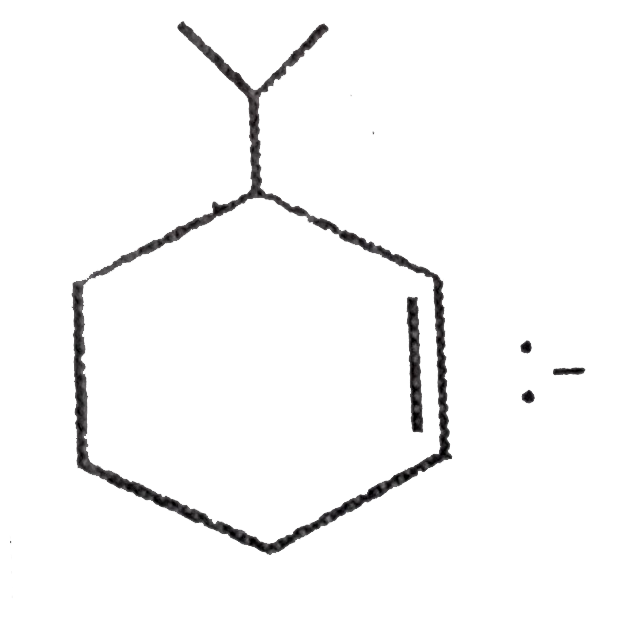Statement-I : Propene is more reactive than ethnc with HCl.
Because
Staement-II : Propene is more stable than ethene.
The correct Answer is:B
To analyze the statements provided in the question, we will break down the reasoning step by step.
Step 1: Understand the Reactivity of Propene and Ethene with HCl
- Propene (C3H6) has the structure:
H2C=CH−CH3
- Ethene (C2H4) has the structure:
H2C=CH2
- When HCl reacts with these alkenes, a carbocation is formed.
Step 2: Identify the Type of Carbocation Formed
- For Propene, the addition of HCl leads to the formation of a secondary carbocation:
H2C−CH(+)−CH3
- For Ethene, the addition of HCl leads to the formation of a primary carbocation:
H2C−CH(+)−H
Step 3: Stability of Carbocations
- Secondary carbocations (like the one formed from propene) are more stable than primary carbocations (like the one formed from ethene) due to hyperconjugation and inductive effects.
- Therefore, the secondary carbocation formed from propene is more stable than the primary carbocation formed from ethene.
Step 4: Conclusion on Reactivity
- Since propene forms a more stable carbocation compared to ethene when reacting with HCl, it is more reactive than ethene with HCl. Thus, Statement-I is correct.
Step 5: Analyze the Stability of Propene and Ethene
- Propene has three alpha hydrogens (attached to the carbon adjacent to the double bond), while Ethene has none.
- The stability of alkenes is influenced by the number of alpha hydrogens due to hyperconjugation. More alpha hydrogens lead to greater stability.
Step 6: Conclusion on Stability
- Since propene has more alpha hydrogens than ethene, Statement-II is also correct.
Step 7: Evaluate the Relationship Between the Statements
- While both statements are correct, Statement-II does not provide a valid explanation for Statement-I. The reactivity of propene with HCl is due to the stability of the carbocation formed, not merely because propene is more stable than ethene.
Final Answer
- Statement-I is correct: Propene is more reactive than ethene with HCl.
- Statement-II is correct: Propene is more stable than ethene.
- However, Statement-II is not the correct explanation for Statement-I.
- Propene (C3H6) has the structure:
H2C=CH−CH3
- Ethene (C2H4) has the structure:
H2C=CH2
- When HCl reacts with these alkenes, a carbocation is formed.
- For Propene, the addition of HCl leads to the formation of a secondary carbocation:
H2C−CH(+)−CH3
- For Ethene, the addition of HCl leads to the formation of a primary carbocation:
H2C−CH(+)−H
- Secondary carbocations (like the one formed from propene) are more stable than primary carbocations (like the one formed from ethene) due to hyperconjugation and inductive effects.
- Therefore, the secondary carbocation formed from propene is more stable than the primary carbocation formed from ethene.
- Since propene forms a more stable carbocation compared to ethene when reacting with HCl, it is more reactive than ethene with HCl. Thus, Statement-I is correct.
- Propene has three alpha hydrogens (attached to the carbon adjacent to the double bond), while Ethene has none.
- The stability of alkenes is influenced by the number of alpha hydrogens due to hyperconjugation. More alpha hydrogens lead to greater stability.
- Since propene has more alpha hydrogens than ethene, Statement-II is also correct.
- While both statements are correct, Statement-II does not provide a valid explanation for Statement-I. The reactivity of propene with HCl is due to the stability of the carbocation formed, not merely because propene is more stable than ethene.
- Statement-I is correct: Propene is more reactive than ethene with HCl.
- Statement-II is correct: Propene is more stable than ethene.
- However, Statement-II is not the correct explanation for Statement-I.
Topper's Solved these Questions
- ALKENE, ALKANE & ALKYNE BOOK - ALLENCHAPTER - ALKENE, ALKANE & ALKYNE EXERCISE - EXERCISE-4(A)
10 Videos
- ALKENE, ALKANE & ALKYNE BOOK - ALLENCHAPTER - ALKENE, ALKANE & ALKYNE EXERCISE - EXERCISE-4(B)
10 Videos
- ALKENE, ALKANE & ALKYNE BOOK - ALLENCHAPTER - ALKENE, ALKANE & ALKYNE EXERCISE - EXERCISE-2
103 Videos
- AIIMS 2019BOOK - ALLENCHAPTER - AIIMS 2019EXERCISE - CHEMISTRY
40 Videos
- ALKYL AND ARYL HALIDEBOOK - ALLENCHAPTER - ALKYL AND ARYL HALIDEEXERCISE - EXERCISE-05 (B)
35 Videos
Similar Questions
Why is ICI more reactive than I2?
View SolutionStatement-I: Ketones are less reactive than aldehydes.
Because
Statement-II: Ketones do not give Schiff's test.
View SolutionWhy are alkenes more reactive than alkanes ?
View SolutionWhy phosphorus is more reactive than nitrogen?
View SolutionLithium is more reactive than potassium.
View SolutionStatement-I : Nitration of toluene is easier than benzene
Because
Staement-II : The methyl group in touene is electron-releasing
View SolutionA metal which is more reactive than calcium.
View SolutionWhich of the following alkene is more stable than

View SolutionStatement-1 : Halogens are more reactive than interhalogens.
Statement-2 :Bond in the interhalognes (X-Y) is weaker than X-X bond in the halogens.
View SolutionWhy interhalogens are more reactive than halogens ?
View Solution
